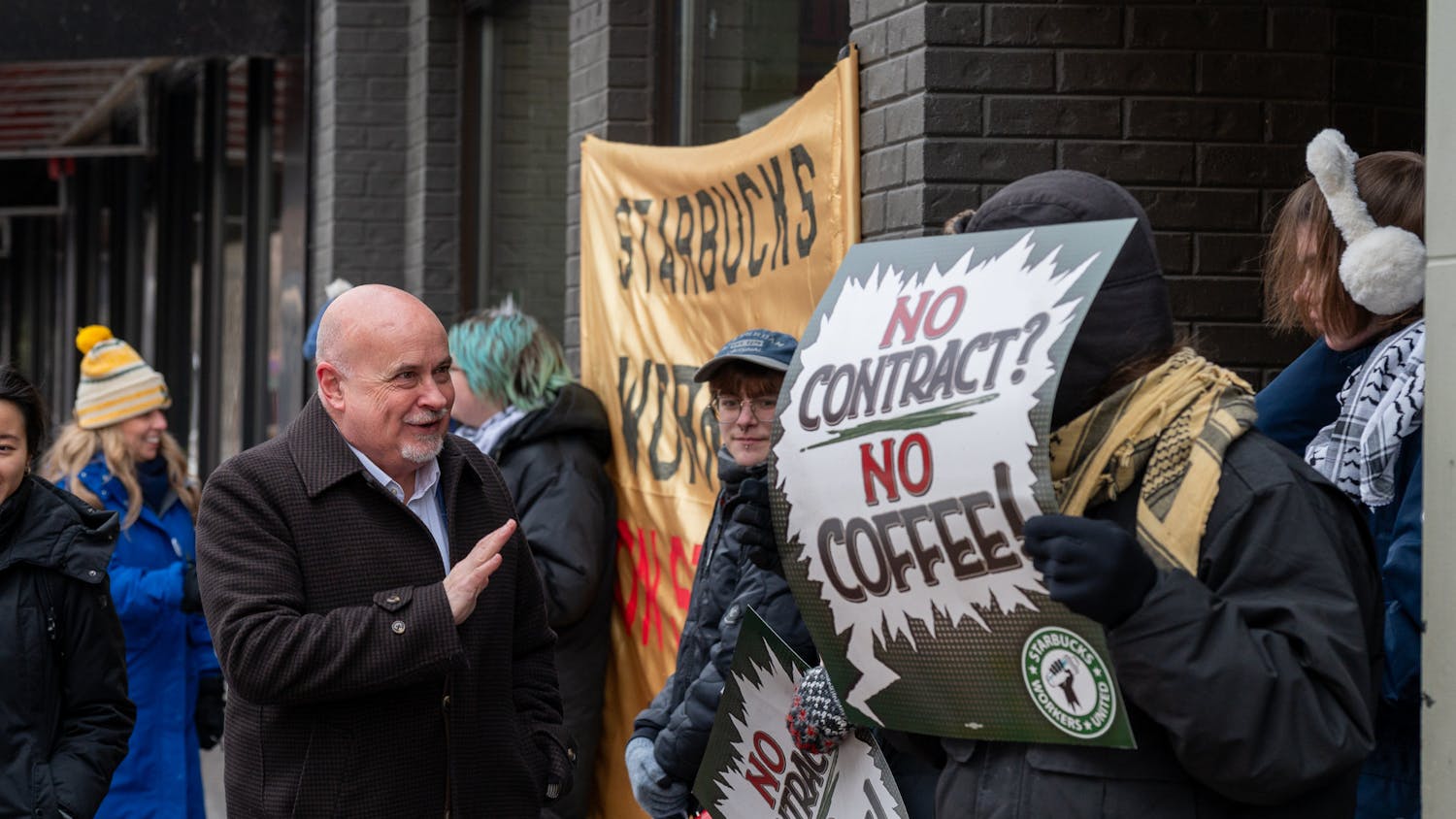The 42nd annual Great Midwest Marijuana Harvest Festival concluded a weekend's worth of events with a march up State Street Sunday after Mayor Paul Soglin repealed a mandatory additional fee for police overtime.
The Harvest Festival began as a spontaneous anti-heroin and pro-marijuana demonstration in 1970 and has continued as a planned event with live music and speakers.
Ruth Reifeis, one of the event's coordinators, said Soglin issued an order Friday stating police could only suggest additional police presence but could not deny anyone a permit if they refused to pay the extra fee.
If police had acted upon the event’s lack of a permit, participants would have had to march on the sidewalks instead of State Street, greatly inconveniencing anyone who was not involved, according to Reifeis.
Despite the initial concern over police involvement, many were surprised to see the event go off without any interference.
Pete Marrero, a vendor who attended Harvest Festival for the first time this year, said he was impressed by the absence of police confrontation at the event.
“The crowd was extremely positive, and I loved the fact that there [were] no issues with any police or any kind of negative situations,” Marrero said.
Douglas Prell, another vendor, said even if police were to attempt to shut down the event, it would have been difficult.
“It's an unstoppable kind of thing,” Prell said. “Hopefully it stays that way.”
University of Wisconsin-Madison alumnus and event organizer Dan Goldman said the media’s coverage of the permit conflict attracted more attendees to the event.
“The crowd was tremendous, the vendors were amazing, the bands and speakers were great, but the weather was a little chilly,” Goldman said.
Reifeis said another group, the Madison Area Peace Coalition, decided to march Saturday without paying the additional police presence fee, which set an example for not just the Harvest Festival but for all activists wanting to use public property to exercise First Amendment rights.
"All of a sudden it broadened the dialogue,” Reifeis said. “It wasn't just those troublesome nuisances who are potheads again. It was everyone, and they rescinded it for everyone thanks to the mayor.”






